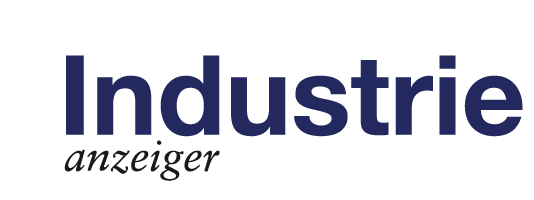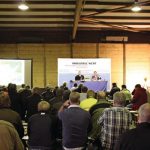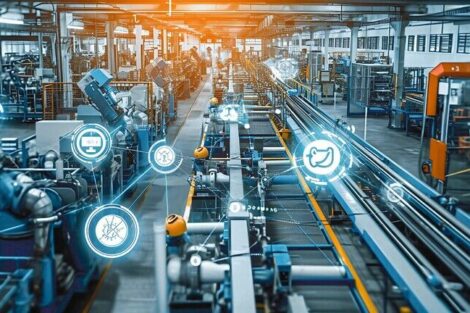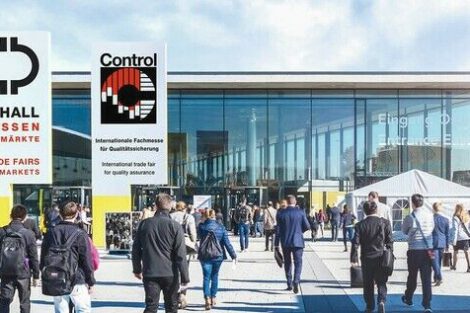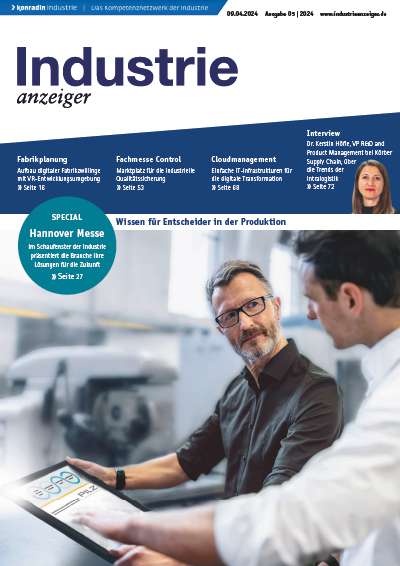The publicly appointed and sworn auctioneers and experts of Industriewert GmbH can often be considered to be an extension of the Official Receiver.
Autor: Dr. Rolf Langbein, Journalist in Rottenburg
The headquarters of the internationally active industrial service company Industriewert GmbH is to be found in Düsseldorf, the capital of the federal state Nordrhein-Westfalen. The company was founded by the current Managing Director Michael Mekelburger in 2001, and today, with its 25 regular employees and 15 self-employed field staff, is one of the most important companies of its type. After he had finished his studies, Mekelburger ended up in this sector “more or less by chance”, he recalls. In 1984 – in those days there were only five industrial auctioneers in Germany – he found a job in one of these established companies. Since 1990 he has been working as Senior Manager, General Manager or Managing Director in leading auctioneering companies in Germany and the USA. From this time the publicly appointed and sworn auctioneer and expert for machines and industrial plant has gathered comprehensive and wide-reaching experience.
“Publicly appointed and sworn – that is a precondition for us to be able to work for the Court – more or less as an extension of the Official Receiver – in cases of bankcruptcy and insolvency”, explains the expert. Before swearing in, it is a legal requirement that the expert can show that he has been active for many years as auctioneer and must moreover pass an exam in order to ensure that the necessary knowledge and corresponding reliability are guaranteed.
”We work for different customers or groups of customers”, explains Mekelburger, giving an insight into current business practice. “These include DAX companies (quoted on the stock exchange) but mainly medium-sized and family companies, which require us to produce an inventory and valuation”. The reasons are manifold. Parts of companies may need to be closed down, joint ventures may be planned or there are problems involving succession or tax. “Taken over the entire company, we take into consideration everything ranging from manufacturing centres, vehicle fleets, stockrooms, transport systems, factory and office equipment including if necessary office furniture”, he reports; “in every case we prepare a stock list with current valuation”.
It is necessary to make a clear distinction between liquidation value and operating value. The first is the value that the owner or seller can sell an item for within a limited time of 3 – 6 months. “This is a value which we guarantee”, emphasises Mekelburger, “and in some cases an even higher price can be achieved”. The second value applies when production is to continue, the company has been taken over or for some other reason manufacture will continue to take place in the same location. There are no costs of acquisition, the machines are connected up to the necessary services and can be used immediately, they do not need to be overhauled, changed or adjusted. “In this case the values are quite different”, says Mekelburger, “this kind of valuation is identical for all customers”.
The second group of customers are credit institutes, banks, and leasing companies. In the case of banks, credit institutes or local savings banks it is a problem of deciding how much can be lent or what is the loan security. In the case of leasing companies, it is a question of establishing a curve showing the diminishing value. This must indicate the development of value in the years-to-come, whether the curve is linear or not, and if there are special market consideration to be taken into account.
“We also do a lot of work for companies operative in the field of used machines and which offer facilities for sale-and-lease-back or sale-and-rent-back, in which we are also involved”, says Mekelburger, thus introducing another important theme. “Whereas banks and credit institutes only offer global credit, i.e. credit related to balance sheets, sale-and-lease-back companies and we too offer credit independent of the status of the customer and based simply on the value of the machines”. These companies, who need financing alternatives, can thus work with fresh capital and then after 24, 36, or 48 months buy the machines back.
The third group consists of consultants, auditors or tax accountants working for the customer, who because of tax demands, for legal reasons or because of hidden assets needs evaluation.
The fourth and last group consists of insolvency administrators and liquidators. They need to know what assets are present and the value of these. “We supply them with the corresponding expertise”, reports Mekelburger, “and these then require from us various services connected to insolvency, bankcruptcy, and liquidation”. One of the services is the calculation of the value of current unfinished orders and/or the control of production costs, i.e. to calculate whether current orders have been correctly costed and are likely to bring a profit. “Moreover we check the current assets and in general help the administrator to establish third-party rights”, he reports. On top of all this it is necessary to check whether there are problems of extended or widened ownership.
Sometimes it is also necessary for Industriewert to install an interim management. “We have staff who have experience as production managers, sales managers or financial managers in various companies”, he says, explaining a further possibility, “and we can install these for a matter of weeks or months in order to ensure that the company affected continues to be competently managed”.
As the range of activities within companies may be very wide, it is not always possible for Industriewert to find short-term specialist managers in each area of activity. “However, over the years we have established a large network of contacts who can help us in emergencies”.
When working in the fields of insolvency and auctioneering, the service force has an important role to play. These people with both commercial and technical knowledge are important when inventories have been completed and valued, and are to be offered for sale. It is they who have to help the company prepare for the forthcoming auction. “The machines have to be cleaned and polished, and spare components must be gathered together”, says Mekelburger, revealing another aspect of the work involved. For example, in the tool cabinets corresponding to each machine, all tools are removed which do not relate directly to the machine in question. These include for example micrometer callipers, other measuring devices, slide gauges and dial gauges or magnetic gauge holders. These are recorded individually, laid out in separate rooms and are sold one by one. “In companies with between 50 and 200 staff, these items often have a total value of several hundred thousand Euro.
When talking about changes in the market, Mekelburger notes that much has happened since the 2005 reform of the laws regarding insolvency. “Insolvency has become less common and there are fewer items to sell”, he sums up. It is nowadays often possible to save a company, because there is strong political pressure to preserve jobs and because new capital is easy to obtain. However, there is often a similar crisis after two to three years. The nature of the competition has also changed. Earlier, there were a few large companies competing with a few small ones, whereas now there are a large number of small companies to be found everywhere which value and sell irrespective of whether sufficient technical knowledge is present.
“We spend a lot of money on advertising, for example when we have the task of selling large machines for which we have guaranteed a selling price”, emphasises Mekelburger. It may be necessary to go to the USA, to India, to China or God-knows-where in order to find a suitable customer. “I always try to do enough homework in order to be able to find the right customer in one go”, is Mekelburger’s guiding principle.
In order to be better prepared for the future, Industriewert took over its competitor Inducon on January 1st of this year. „Now we have in the North of Germany offices in Hamburg, Berlin and Kiel, in the South in Nürnberg, Stuttgart, Munich and Zurich, and in the Rheinland our Headquarters with offices in Aachen and Moers”, he reports. Within a few weeks, Industriewert will also have a permanent online auction in internet. “In the past I was never in favour of this kind of auction but the market, both sellers and buyers, insist on it “, he admits. „We have to move with the times”. •
Teilen:
